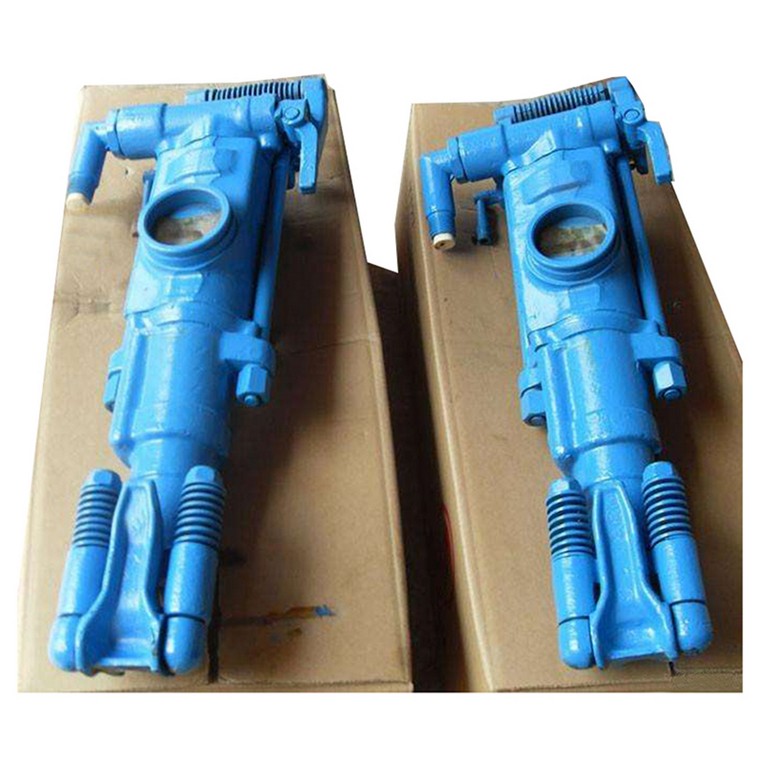

Our society is developing, and machinery and equipment must keep up with the times, or they will have to be eliminated. What I want to tell you is the new era of the air leg rock drill of our Yimei Coal Company.
The air leg rock drill is a modern rock drill product. It adopts the design technology of modern rock drills. Compared with similar products, it has the advantages of low noise, light weight, good economic effect, and fast footage. It has superior performance and reliable use. Effective rock drill. It is suitable for large-scale mines, medium-sized mines and tunnels for rock drilling operations. The domestic users have responded well, and its share in the North Korean market has reached more than 70%.
The air leg rock drill adopts air-water linkage, air-leg quick retraction, air pressure adjustment and other mechanisms, and the control handle is centralized and the handle body. The mechanism is novel and easy to operate. The equipped muffler cover can effectively reduce noise and change the exhaust direction at will. On-site operating conditions, compared with the same type of rock drill: light weight, low noise, high efficiency and good economic effect.
Air leg rock drills are widely used in mining, roadway excavation and various rock drilling operations are important machinery and tools in metallurgy, coal, railway, transportation, water conservancy, infrastructure and national defense stone works. This machine is used for wet drilling operations with medium-hard or hard rocks. The muzzle diameter can reach 34-42mm, and the drilling depth can reach 5m. It can be used with FT160A air legs to drill horizontal and inclined blast holes; it can also be installed with a platform. Work on carts or supports.
The air leg rock drill uses a pneumatic leg instead of manpower to work against the rock drill, thereby greatly reducing the labor intensity of the workers. The main advantage of internal combustion rock drills is that they are easy to carry. When the pneumatic rock drill is working, the air pressure alternately enters the back cavity and the front cavity of the cylinder, pushing the piston to move back and forth. The same pressure also acts on the back cover or front cover of the cylinder, causing the rock drill to move backward or forward. Therefore, the rock drill vibrates to generate drilling force.


© Shandong China Coal Group. © 2016
Address:No. 11, North of Kaiyuan Road, High-tech Zone, Jining City, Shandong Province, China
Executive Editor: Linda Zhang